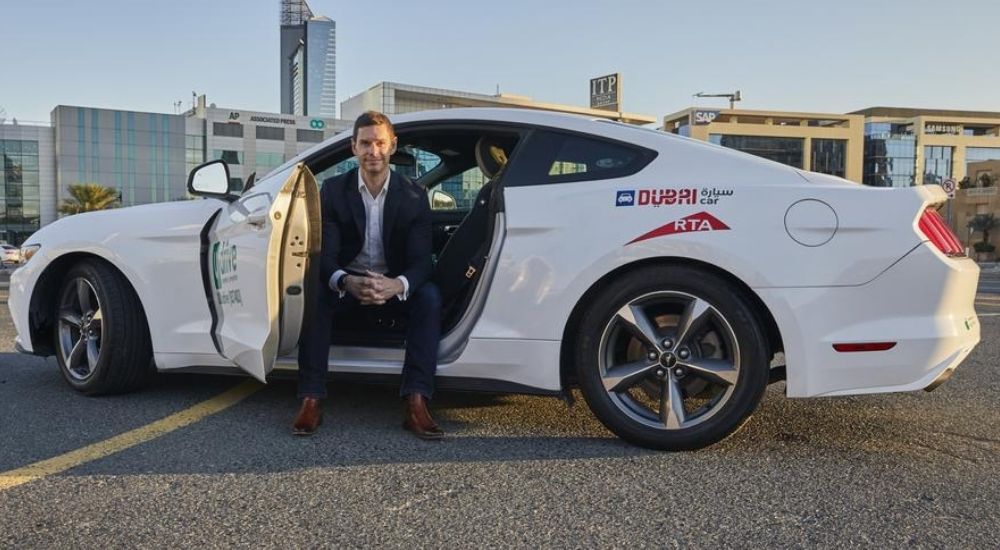$1M from 1M customers or ten customers?

Sharing has been a common and popular method of distributing and obtaining resources in our society. While everyone is familiar with the concept of sharing, the sharing economy is a phenomenon that began with the Internet and has evolved as a natural component of digital transformation.
With practically every industry undergoing a digital transformation, organisations are rethinking their revenue models to allow for more frequent engagement with customers.
Before the digital sharing economy, businesses were the primary providers of services and products in the formal economy. Today with real-time information, people experience new roles as providers of services or goods in their peer networks. Businesses in the sharing economy are emerging in more sectors and, within a few years, will disrupt the entire business ecosystem through so-called creative disruption.
According to an analysis by the Wall Street Journal in 2013, Uber’s value had topped $50 Billion, making it worth more than 80% of the S&P 500 companies, while Airbnb was valued at $24 billion. A related study by PwC shows that while in 2013, the sharing economy companies in the five sectors where the new business model is the most prevalent earned sales revenue of $15 billion, by 2025, this will have risen to $335 billion, so half of the revenues in these markets will go to companies with a sharing-based model.
The same concept applies to the car-sharing industry. For instance, with a car-sharing company, an illiquid asset such as a car, usually only available to one person, can now be fractionalised through digitisation by usage per minute or meter, allowing anyone with a license to drive it.
The rise of the sharing economy has enabled new forms of urban mobility. The idea of owning a car has evolved into creative leasing models, fractional ownership, and other forms of on-demand transportation. By 2026, the number of users in the car-sharing segment is expected to reach 60.7m and the global car-sharing market will reach $103 billion by 2025, with a CAGR of 17.2% during the forecast period by Valuates.
Additionally, KPMG reports almost 50% of car owners today will no longer want to own a vehicle by 2025 and a separate report by ResearchAndMarkets claims four out of every ten car journeys will be via car share.
Serving customers manually is a costly process and should be reserved for complex customer engagements that have a high-value output. In fact, several complex industries are progressively demonstrating that a strong brand that provides outstanding friction-free service may replace the perceived requirement to have a human-to-human interaction.
Not all businesses are suitable for sharing or a collaborative business environment, and in retrospect, the definition of sharing changes every year. As a result, the meaning of sharing may need to be reformulated constantly. For example, is a restaurant a sharing concept? Many people go to the same location, eat the same meal, and share the resources that the restaurant provides.
The success of businesses in a sharing economy is based on their ability to create novel services and individualised experiences at scale. According to a PwC report, sharing economy operators will receive 50% of revenue share in key sectors affected by the sharing economy by 2025, up from 5% in 2013.
Technology can help streamline an experience while changing the dynamics of the business model and revenue-cost streams in the process. The question is, do we generate one million dollars from one million customers or ten customers, and which approach provides the best revenue option with a streamlined customer experience? While a premium service will exist in any industry, there will always be a need for cost-effective services.
The shared mobility trend has multiple benefits for both the environment and everyday urban life and is emerging as an investment trend for the future. The need for shared mobility was driven by increasing traffic congestion in cities that caused pollution, and more importantly, change in consumer behaviour. To address these issues, car-sharing retains the potential to provide easy access and address any gaps in the current transportation system.
KEY TAKEAWAYS
- KPMG reports almost 50% of car owners today will no longer want to own a vehicle by 2025.
- ResearchAndMarkets claims four out of every ten car journeys will be via car share by 2025.
- Serving customers manually is costly and should be reserved for complex customer engagements that have high-value output.
- Technology can help streamline an experience while changing the dynamics of the business model.
The success of businesses in a sharing economy is based on their ability to create novel services and individualised experiences at scale.






